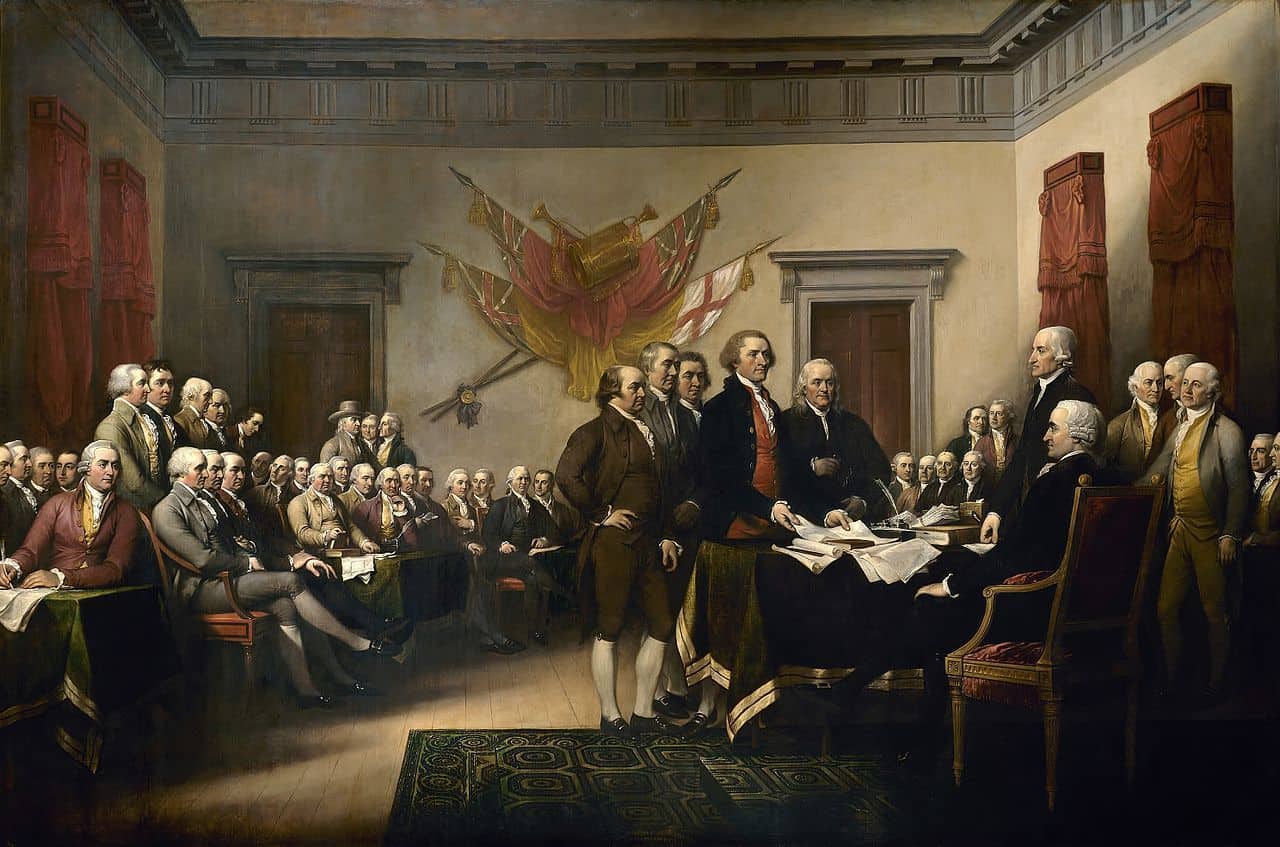Highlighting the Bedrock Tenets on Which the
United States of America Was Founded
The 4th of July is the first great fact in your nation’s history — the very ring-bolt in the chain of your yet undeveloped destiny. Pride and patriotism, not less than gratitude, prompt you to celebrate and to hold it in perpetual remembrance. I have said that the Declaration of Independence is the ring-bolt to the chain of your nation’s destiny; so, indeed, I regard it. The principles contained in that instrument are saving principles. Stand by those principles, be true to them on all occasions, in all places, against all foes, and at whatever cost.
—Frederick Douglass, in a speech delivered July 5, 1852 titled “What to the Slave is the Fourth of July?”1—
Overview: The purpose of this article is to mine from the most quoted portion of the Declaration of Independence what we may call bedrock principles of liberty. We will highlight and discuss ten such principles or truths. Some are obvious, but we have become too accustomed to the words and have grown increasingly unaware of their true meaning. In other cases, various ideals are implied rather than explicit, so one has to read between the lines. Because leftists often use the same words but with very different meanings, people frequently are duped by their emotional and passionate rhetoric. Going back to the Declaration of Independence and unearthing the intent of the Founders is an important step in effectively refuting the claims of the left and upholding the torch of authentic freedom.
The contents of this article originally appeared in parts 2 and 3 in this series. A five-session Bible study based on this article also is available. It is titled Principles of Liberty: Ten Biblical Truths Embedded in the Declaration of Independence.
The Declaration of Independence affirms timeless principles that were revolutionary at the time of its adoption and that remain revolutionary today. It is not difficult to draw connections between these ideals and biblical truths, for many “Declaration principles” are rooted in Scripture. Drawing from the words of the Declaration, we will examine ten ideals that are inherent in the document. Ours is not an exhaustive list, by any means; yet it is a substantive list. These truths are not totally hidden, but in most cases they are assumed, and therefore evident by implication. Highlighting these tenets will demonstrate just how far America has departed from its foundation. Hopefully our discussion also will serve as a warning to 21st-century Americans that they must rediscover these ideals, return to them, and embrace them once more.

In June of 1776, when the Second Continental Congress was considering a motion made by delegate Richard Henry Lee to sever the ties the Colonies had had with Great Britain, the Congress appointed a committee to draft a document that would declare independence. Lee made his motion on June 7. Members of the Congress debated the motion for several days but then decided not to vote on it until July 1. At the time of the vote, the Congress would have a draft of a declaration before them to consider, refine, and potentially adopt.
On Tuesday, June 11, a group that became known as the “Committee of Five” was charged with drafting a declaration. This group included Thomas Jefferson, who became the document’s principal author. Numerous edits were made to Jefferson’s draft by the committee and then by the members of the Second Continental Congress. Go here to read Jefferson’s original draft, and here to compare and contrast the original to the final version. You can listen to and download MP3 audio files of both versions at this page from the Monticello website.
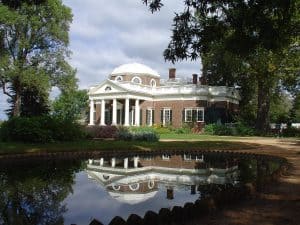
We will not examine here the entire document but the most quoted and best known portion of it; and on our our journey we will encounter numerous ideals on which the new nation was built.
Jefferson’s original draft reads,
When in the course of human events it becomes necessary for a people to advance from that subordination in which they have hitherto remained, & to assume among the powers of the earth the equal & independant station to which the laws of nature & of nature’s god entitle them, a decent respect to the opinions of mankind requires that they should declare the causes which impel them to the change.
We hold these truths to be sacred & undeniable; that all men are created equal & independant, that from that equal creation they derive rights inherent & inalienable, among which are the preservation of life, & liberty, & the pursuit of happiness; that to secure these ends, governments are instituted among men, deriving their just powers from the consent of the governed; that whenever any form of government shall become destructive of these ends, it is the right of the people to alter or to abolish it, & to institute new government, laying it’s foundation on such principles & organising it’s powers in such form, as to them shall seem most likely to effect their safety & happiness.
The final version refines Jefferson’s draft in various places but does not alter his essential thrust or meaning.
When in the Course of human events it becomes necessary for one people to dissolve the political bands which have connected them with another and to assume among the powers of the earth, the separate and equal station to which the Laws of Nature and of Nature’s God entitle them, a decent respect to the opinions of mankind requires that they should declare the causes which impel them to the separation.
We hold these truths to be self-evident, that all men are created equal, that they are endowed by their Creator with certain unalienable Rights, that among these are Life, Liberty and the pursuit of Happiness. — That to secure these rights, Governments are instituted among Men, deriving their just powers from the consent of the governed, — That whenever any Form of Government becomes destructive of these ends, it is the Right of the People to alter or to abolish it, and to institute new Government, laying its foundation on such principles and organizing its powers in such form, as to them shall seem most likely to effect their Safety and Happiness.
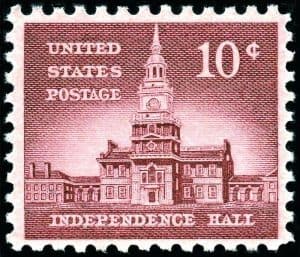
In our discussion, we’ll quote from both the draft and the final version of the Declaration. In those places where we do not specifically name which one we are quoting, we will be quoting the final copy.
Principle 1: God exists, has established an ordered and moral universe, and holds humanity accountable.
Jefferson’s draft affirms the efforts of a people “to assume among the powers of the earth the equal & independant station to which the laws of nature & of nature’s god entitle them,” and the final document upholds their efforts “to assume among the powers of the earth, the separate and equal station to which the Laws of Nature and of Nature’s God entitle them.” This assumes or presupposes that the people involved are not acting arbitrarily, but in accord with God and His revealed will.
Principle 2: Absolute truths exist and are knowable.
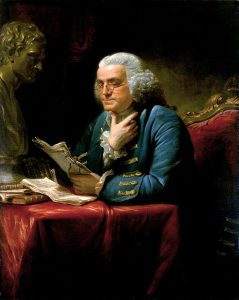
“We hold these truths to be sacred and undeniable,” Thomas Jefferson wrote. Honing in on and sharpening one aspect of the ideas these two adjectives highlighted together, the final document reads, “We hold these truths to be “self-evident.…” Most historians believe Benjamin Franklin initiated this change, but the question of who should be credited with it probably isn’t the most valuable nugget worth mining here.
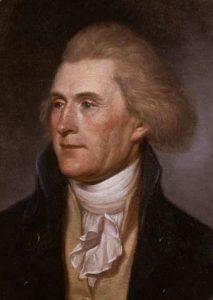
Jefferson’s term sacred underscored God’s involvement in human affairs through divine bestowal of unalienable rights. This was an element the final version would explicitly emphasize only a few words later. His term undeniable highlighted the Founders’ perspective that the truths being upheld had to be acknowledged, but the reality of the day was that, in fact, “many people…did deny that mankind has unalienable rights. All the deniers would have to do to refute the claim is simply disagree; nothing more would be required.” By contrast, the term self-evident put the onus back on those inclined to claim unalienable rights were not real. A self-evident truth, by its very existence, rightly claims that those who deny it are foolish. Now, they may be deceived, and therefore worthy of sympathy and compassion—but sympathy and compassion are neither authentic nor helpful if those who supposedly are sympathetic avoid or water down the truth. The idea that a biological man actually can be a woman, or that a biological woman can legitimately identify as a man, is an example of a modern falsehood that must be countered with the truth. Compassion demands this. This and many other leftist ideologies demonstrate with utter clarity just how far Americans have drifted away from the beliefs the Founders upheld.
This is not to say that all self-evident truths are equally self-evident. Nor is it to say that all such truths are equally self-evident to all people. We’ve noted already that “many people” in the second half of the 18th century “did deny that mankind has unalienable rights.” The Founders’ recognition of self-evident truths—that alone—attests to their holding a biblical worldview. Alvin J. Schmidt writes that the term self-evident
has Christian roots going back to the theological writings of the eighth century. To the medievalists, “self-evident” knowledge, says Gary Amos, “was truth known intuitively, as direct revelation from God, without the need for proofs. The term presumed that man was created in the image of God, and presumed certain beliefs about man’s rationality which can be traced as far back as Augustine in the early fifth century.”2 Amos also shows that St. Paul in the Epistle to the Romans wrote that since the creation, even to the pagans, God’s “invisible attributes are clearly seen” (Romans 1:20 NKJV), that is, self-evident. In the previous verse, Paul says that these truths are phaneron estin en autois (evident by themselves). Thus, it is quite plausible that Paul’s biblical concept of “self-evident” knowingly or unknowingly influenced Jefferson [and the others] when he [—they—] declared, “We hold these Truths to be self-evident.”3
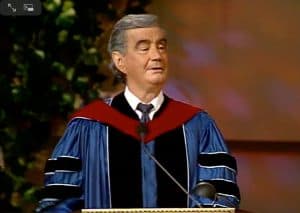
Even though not all the Founders were Christians, many were. Dr. D. James Kennedy indicates that the late Dr. M. E. Bradford of the University of Dallas, through his research, determined that fifty and perhaps fifty-two of the fifty-six signers of America’s founding document were “Trinitarian Christians.” That’s not all, either! Dr. Kennedy says as well that other experts “note that 29 of them had the equivalent of seminary degrees.” Try finding that many theologians in a group of politicians today! This was the case despite the fact that only one signer—John Witherspoon—was a pastor.
Regardless of how many of the 56 truly were believers, it is undeniable that on the whole they held to a biblical, or we could say a Christian, worldview. Consequently, they readily understood that certain rights are God-given, and therefore unalienable, inherent—and yes—absolute.
Principle 3: God and His laws establish the track on which men and nations must travel to attain happiness, fulfillment, greatness; and to reach their God-given potential.
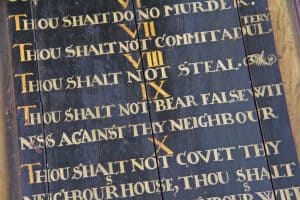
While the Declaration of Independence frames this principle in the context of Colonial opposition to British tyranny and the forming of a new nation to secure and protect citizens’ inherent rights, the lesson has an even broader application. Both people and governments are accountable to God. Our Founders knew that men and women cannot live fulfilled lives by merely following their whims and desires, treading down whatever paths their raw appetites direct them. Rather, they must “assume among the powers of the earth, the separate and equal station to which the Laws of Nature and of Nature’s God entitle them.” The word entitle is important here, and it appears both in Jefferson’s draft and in the final document. Entitle as the Founders used it is light years away from the meanings it and its various forms frequently carry today. How do we know this? Because according to the men who ratified the Declaration, that to which the people are entitled is granted and governed according to “the Laws of Nature and of Nature’s God.” By contrast, today, people look to government for everything to which they believe they are “entitled.”
Entitle as the Founders used it is light years away from the meanings it and its various forms frequently carry today.
Take note! The parameters set by “the Laws of Nature and of Nature’s God” are not nearly as restrictive as they are liberating. Within them, people can “alter or…abolish” government that refuses to secure and protect unalienable, God-given rights “and…institute new Government, laying its foundation on such principles and organizing its powers in such form, as to them shall seem most likely to effect their Safety and Happiness.” According to the Founders, this perspective of the people — the “form [that]…to them shall seem most likely to affect their Safety and Happiness” — also is governed and regulated by God and His laws. No wonder we find these lines in the patriotic hymn, “America, the Beautiful“:
America! America!
God mend thine every flaw,
Confirm thy soul in self-control,
Thy liberty in law!
Sadly, the idea that liberty and law go together is a foreign concept to Americans today. Many, if not most, see these two elements as totally contradictory. But they’re not! Not only are they compatible; they’re inseparable! How can a nation prosper? How can liberty thrive? Only under God!

On July 5, 1926, in a speech commemorating the 150thanniversary of the Declaration of Independence, and consequently the 150th birthday of the United States of America, President Calvin Coolidge declared,
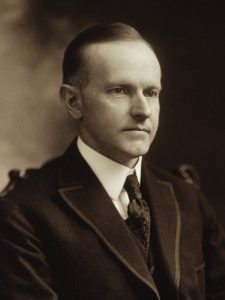
A spring will cease to flow if its source be dried up; a tree will wither if it roots be destroyed. In its main features the Declaration of Independence is a great spiritual document. It is a declaration not of material but of spiritual conceptions. Equality, liberty, popular sovereignty, the rights of man – these are not elements which we can see and touch. They are ideals. They have their source and their roots in the religious convictions. They belong to the unseen world. Unless the faith of the American people in these religious convictions is to endure, the principles of our Declaration will perish. We can not continue to enjoy the result if we neglect and abandon the cause.
President Coolidge simply was echoing the sentiments of the Founders.4
- George Washington, in his Farewell Address that was printed and distributed widely in 1796, proclaimed, “Of all the dispositions and habits which lead to political prosperity, religion and morality are indispensable supports. In vain would that man claim the tribute of patriotism who should labor to subvert these great pillars of human happiness—these firmest props of the duties of men and citizens. The mere politician, equally with the pious man, ought to respect and to cherish them.”
- Charles Carroll, signer of the Declaration, declared, “Without morals a republic cannot subsist any length of time; they therefore who are decrying the Christian religion, whose morality is so sublime and pure (and) which insures to the good eternal happiness, are undermining the solid foundation of morals, the best security for the duration of free governments.”
- John Adams put it this way: “[I]t is religion and morality alone which can establish the principles upon which freedom can securely stand. The only foundation of a free constitution is pure virtue.”
- John Adams’s second cousin, Samuel Adams, said this: “[N]either the wisest constitution nor the wisest laws will secure the liberty and happiness of a people whose manners are universally corrupt.”
- Born a bit later than the Founders (on January 18, 1782), Daniel Webster became a powerful orator and lawyer, a member of the US House of Representatives, a US Senator, and Secretary of State under Presidents William Henry Harrison, John Tyler, and Millard Fillmore. Webster declared, “If we and our posterity reject religious instruction and authority, violate the rules of eternal justice, trifle with the injunctions of morality, and recklessly destroy the political constitution, which holds us together, no man can tell, how sudden a catastrophe may overwhelm us, that shall bury all our glory in profound obscurity.”
If we and our posterity reject religious instruction and authority, violate the rules of eternal justice, trifle with the injunctions of morality, and recklessly destroy the political Constitution which holds us together, no man can tell how sudden a catastrophe may overwhelm us, that shall bury all our glory in profound obscurity.
—Daniel Webster—
By the way, the concept of “eternal justice” as Daniel Webster used it stands firmly against “social justice,” a movement that calls for government intervention to achieve “equality.”
Principle 4: God has created human beings equal in value, and He intends for them to be treated with dignity and respect.
Here we focus on the phrase, “all men are created equal.” Jefferson’s original words were these: “We hold these truths to be sacred & undeniable; that all men are created equal & independant, that from that equal creation they derive rights inherent & inalienable, among which are the preservation of life, & liberty, & the pursuit of happiness.…” After the gifted writer’s colleagues had made their revisions, the statement read, “We hold these truths to be self-evident, that all men are created equal, that they are endowed by their Creator with certain unalienable Rights, that among these are Life, Liberty and the pursuit of Happiness.” Of course, the idea that all men are created equal is quite radical, and it was radical then as well.
Inevitably, someone will ask, Why did the Founders say this but not abolish slavery? It’s an important question. Yet to be fair we must
evaluate our Founders not in light of our own culture, but in light of theirs; America’s “Founders were born into a society that permitted slavery.”5 Despite this, some swam against the tide as they expressed resistance and even opposition to the practice.
Thomas Jefferson, himself a slaveowner, was one such man. In his original draft of the Declaration, he took the King of England to task for his role in the slave trade. He wrote,
he has waged cruel war against human nature itself, violating it’s most sacred rights of life & liberty in the persons of a distant people who never offended him, captivating & carrying them into slavery in another hemisphere, or to incur miserable death in their transportation thither. this piratical warfare, the opprobrium of infidel powers, is the warfare of the CHRISTIAN king of Great Britain. determined to keep open a market where MEN should be bought & sold, he has prostituted his negative for suppressing every legislative attempt to prohibit or to restrain this execrable commerce; and that this assemblage of horrors might want no fact of distinguished die, he is now exciting those very people to rise in arms among us, and to purchase that liberty of which he has deprived them, & murdering the people upon whom he also obtruded them; thus paying off former crimes committed against the liberties of one people, with crimes which he urges them to commit against the lives of another.
In this paragraph, Jefferson harshly condemned King George III; yet ironically, he also condemned the slaves by implication, at least with regard to certain actions (not, we should note, with regard to the color of their skin.) Still, we are foolish to ignore the strength of Jefferson’s case against slavery, one that was all the more remarkable because it was penned during an era when, and in a culture where, the practice was embedded in everyday life. We can scratch our heads in bewilderment over what to us appears to be Jefferson’s hypocrisy; but more realistically, doesn’t it appear that these are the actions of a man whose conscience has been stirred, but who knows he cannot overturn this aspect of the cultural landscape in a split second?

Moreover, Jefferson’s own involvement in the institution of slavery was deep, yet not fully because of his own conscious choices. Again, the Virginian was born at a time when slavery was the order of the day. Can we not understand he personally finds it difficult at one moment in time to do a complete about-face regarding the matter?
Do not misunderstand. I’m not defending slavery—not for a New York minute. I’m merely saying Jefferson’s action here represents a step in the right direction—for him and for a nation on the cusp of its birth. For articles that offer a more thorough discussion of the issue of slavery, racism, and the Founders, visit this page.
When the edits were made, the paragraph was struck, so the Declaration did not, and does not, condemn slavery explicitly. Yet it does so implicitly! Statements that remained in the document would prove in the decades ahead to be extremely powerful weapons against institutional slavery and other societal wrongs. While
the Founders did not immediately free the slaves, give votes to their wives, or invite the Indian tribes to sign the Declaration with them…all of the greatest advocates for human equality in America—Abraham Lincoln and Frederick Douglass, Elizabeth Cady Stanton and the Suffragettes, Martin Luther King Jr.—pointed to this passage in the Declaration to give force to their demands for justice.6
Thus, the concept that “all men are created equal” became one of the most powerful ever upheld by a nation. We can be grateful for this in many ways, but a word of warning is in order.
In recent decades, Americans foolishly have rallied around the banner of equality alone when, in the original statement on America’s “birth certificate,” the meaning of the word equal is informed, tempered, and shaped by the word created. Created, in turn, is linked inseparably to the divine title Creator. The implications of these realities, of course, are enormous.
In the Declaration of Independence, the meaning of the word equal is informed, tempered, and shaped by the word created. Created, in turn, is linked inseparably to the term Creator.
We must realize this and let it sink in! The equality among men that Jefferson, the Committee of Five, and the Second Continental Congress promoted and upheld is not one achieved through societal manipulation or government intervention, but one that already exists. It is an equality government has a duty to recognize and protect, a God-given attribute in which unalienable rights are deeply rooted and in which they find their sustenance. We have ignored this point to our own peril, and we must rediscover it and appreciate it once again.
Principle 5: Rights are inherent and God-given and are rooted in God’s having created members of the human race in His own image.
In our discussion of principle 2, we cited a quote from Alvin Schmidt where, citing Gary Amos, Schmidt points out that the meaning of the word self-evident alludes to the truth that God creates people in His image. God’s bestowing rights on all human beings provides additional affirmation of this truth.
Once again, we see that equality among members of the human race isn’t achieved by government intervention; rather, it is granted by God at creation. People and governments are responsible to recognize this equality as inherent, and the two most important ways they can do this are by 1) recognizing and 2) protecting unalienable rights. Citizens must have the freedom and liberty to pursue their dreams. For individuals, this means affirming the dignity of all and not thwarting the efforts of others to reach their God-given potential. For government, it involves protecting people’s efforts to achieve, accomplish, produce, and yes, build wealth. It is the job of the government
-
-
- to keep citizens from hindering other citizens’ efforts to achieve, and
- to refrain from hindering them itself.
-
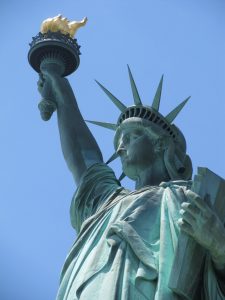
The rights the Declaration identifies — “Life, Liberty and the pursuit of Happiness,” tell us much about the kinds of rights the Founders recognized. They did not affirm a “right” to happiness, but the right to pursue it! Nor did they uphold a “right” to “income equality,” “reproductive health,” or even healthcare in general. Americans today apparently are unaware that these are qualitatively different from the rights the Founders identified.
“Life, liberty, and the pursuit of happiness” are what social scientists call “negative rights.” To enjoy them, individuals themselves must be free to act in unhindered ways. On the other hand, “positive rights” are “achieved” through government manipulation, a process that tramples all over the negative, inherent rights of others and that flies in the face of government’s God-given, limited role.7 Like it or not, this was the Founders’ perspective. (Truthfully, the better we understand it, the better we like it, and, in fact, the more we fall in love with it!) This perspective—of upholding and protecting negative rights—has been a major reason America became the greatest, freest, most civil, most powerful, most benevolent, and most prosperous nation on earth.
America’s Founding Fathers did not affirm a “right” to happiness, but the right to pursue it! There is a qualitative difference between these two. The former is a positive “right” and the latter a negative one. Through the Declaration of Independence, America’s Founders upheld the validity, not of positive rights, but of negative ones.
Principle 6: Equality as used by Jefferson and the rest of the Founders refers to equality of worth and affirmation of natural opportunities, not to equality of outcomes achieved by government manipulation of outcomes, opportunities, or both.
This principle elaborates on the fifth principle. The Founders correctly saw equality as being at the “front end” of people’s lives rather than the “back end,” a place at which people arrive only after government has orchestrated and rearranged the playing field.
This latter concept of equality consistently is 1) elusive, 2) unsatisfying, and 3) a poison that kills people’s personal incentive to work and achieve. Despite this, you’ll find many advocates for this concept of equality among those contending for so-called “social justice” today.
Principle 7: Rights are inextricably linked to God’s laws.
We spoke of the role of God’s laws in contributing to human happiness and freedom in our discussion of the third principle; here we tie God’s laws to individual, inherent rights. Try to comprehend how far we have departed from the Founders’ view of rights! I could name many so-called “rights” Americans have petitioned government to grant them, and in many if not most cases, government has complied—in direct violation of the Founders’ view of rights, the Declaration of Independence, and the Constitution of the United States. One prime example is the “right” to “marriage equality” or “same-sex ‘marriage.'”
Mark it down! Same-sex “marriage” affirms homosexuality as being on par with heterosexuality and defies everything we know intuitively about what marriage is and ought to be. (See the Word Foundations article titled “God’s Definition of Marriage is Self-Evident.”) Recognition of a same-sex relationship as a marriage or a potential marriage was, is, and forever will be a blatant violation of “the Laws of Nature and of Nature’s God.”
Recognition of a same-sex relationship as a marriage or a potential marriage was, is, and forever will be a blatant violation of “the Laws of Nature and of Nature’s God.”
Principle 8: Government does not grant rights but has the responsibility to recognize, maintain, and protect them.
Read carefully this portion of Clarence Thomas’s dissent in Obergefell, the June 26, 2015 Supreme Court ruling that mandated same-sex “marriage” nationwide.
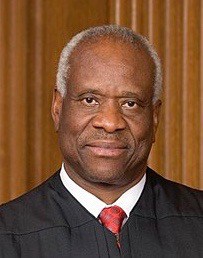
The Court’s decision today is at odds not only with the Constitution, but with the principles upon which our Nation was built. Since well before 1787, liberty has been understood as freedom from government action, not entitlement to government benefits. The Framers created our Constitution to preserve that understanding of liberty. Yet the majority invokes our Constitution in the name of a “liberty” that the Framers would not have recognized, to the detriment of the liberty they sought to protect. Along the way, it rejects the idea—captured in our Declaration of Independence—that human dignity is innate and suggests instead that it comes from the Government. This distortion of our Constitution not only ignores the text, it inverts the relationship between the individual and the state in our Republic. I cannot agree with it.
Since well before 1787, liberty has been understood as freedom from government action, not entitlement to government benefits.
—Supreme Court Justice Clarence Thomas—
The “right” to same-sex marriage was carved out of emotional appeals and myths; it was fabricated by government manipulation and exploitation. No such “right” is unalienable; it is bestowed by government, regulated by government, and subject to government whims.
Let us also understand this specifically about the Court’s redefinition of marriage. With Obergefell, elitists moved natural, man-woman marriage itself under its own jurisdiction. If government can grant rights, then it can twist them, reshape them, manipulate them, and even take them away. This is tyranny, and it is a form of tyranny that is even worse than the oppression our forebears opposed and fled. Justice Thomas understands as do far too few just how contrary to America’s founding principles Obergefell is.

Same-sex “marriage” and other “rights” created by government elites are based on what the late Francis Schaeffer called “arbitrary absolutes.” Because the imposition of arbitrary absolutes is unbiblical and constitutes tyranny, Christians must oppose these and similar actions. Our opposition must include, but cannot be limited to, our 1) upholding biblical truth in the form of the Founders’ perspective on rights as unalienable and fixed (see Principle 5), as well as 2) our contending for the Founders’ belief that absolute truths, including right and wrong, exist and are knowable (see Principle 2).

Dr. Schaeffer believed that no government that acts to impose its own version of morality on society can amiably coexist with citizens who hold them accountable by pointing to bedrock, immutable truths. The early church faced a similar scenario when its members refused to worship Caesar as lord because they knew only Jesus was and is Lord. In America the confrontation won’t be one about actively worshiping government elites as deities, but leftist tyrants will demand allegiance nonetheless. Just ask Barronelle Stutzman. Barronelle is a Christian florist in Washington State who politely turned down an invitation from a gay man and a friend who’d been a customer of hers for 10 years. He wanted her to arrange flowers at his “wedding” ceremony. She declined because of her commitment to Christ and biblical principles, including what Scripture says about marriage. Barronelle has been in court defending her religious liberty rights for many years now, and her case still is unresolved.
The need is urgent. Christians must actively oppose “the tyranny of the elites,” and they must do so on an ongoing basis. If they don’t, their inaction will amount to surrender and a forfeiture of religious and economic freedom. Schaeffer offers a sentence for his readers to memorize. “To make no decision in regard to the growth of authoritarian government is already a decision for it.”
To make no decision in regard to the growth of authoritarian government is already a decision for it.
—Francis Schaeffer—
Unfortunately, Obergefell is but one of several Supreme Court rulings in recent decades that have violated the letter, spirit, and intent of the Declaration of Independence. Roe v. Wade and Doe v. Bolton, both permitting abortion, are two others. How can a Supreme Court decision that sets the stage to take life be consistent with an unalienable right to life? It can’t! Learn more here.
How can a Supreme Court decision that sets the stage to take life be consistent with the unalienable right to life? It can’t!
Principle 9: Government has limited authority.
Principle 9 overlaps with Principles 8 and 10, but it deserves to be treated as a separate item on the list. The Declaration of Independence puts it eloquently, yet powerfully and clearly.
- First, government’s role is to secure or protect “unalienable rights,” rights given by God.
- Second, government’s powers are derived “from the consent of the governed.”
- Third, the power of government is to be “just.”
The inclusion of the ideal of limited government in the Declaration of Independence was no accident. First, to the discerning mind, this makes perfect sense. Liberty can thrive in a nation, and the people’s inherent rights can be preserved, only if government’s powers are bridled. Second, during the time leading up to the American Revolution, a consensus had been growing that a king’s, or government’s, authority was not unlimited. We turn once more to Francis Schaeffer. In his landmark work, A Christian Manifesto (1981), Dr. Schaeffer explains,
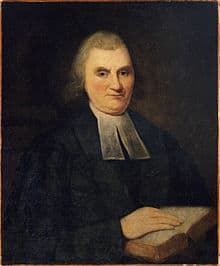
John Witherspoon, a Presbyterian minister and president of what is now Princeton University, was the only pastor to sign the Declaration of Independence. He was a very important man during the founding of the country. He linked the Christian thinking represented by the College of New Jersey (now Princeton University) with the work he did both on the Declaration of Independence and on countless very important committees in the founding of the country. This linkage of Christian thinking and the concepts of government were not incidental but fundamental. John Witherspoon knew and stood consciously in the stream of Samuel Rutherford, a Scotsman who lived from 1600-1661 and who wrote Lex Rex in 1644. Lex rex means “law is king”—a phrase that was absolutely earthshaking. Prior to that it had been rex lex, the king is law. In Lex Rex he wrote that the law, and no one else, is king. Therefore, the heads of government are under the law, not a law unto themselves.
Lex rex means “law is king”—a phrase that was absolutely earthshaking. Prior to that it had been rex lex, the king is law. In [his book] Lex Rex he [Samuel Rutherford] wrote that the law, and no one else, is king. Therefore, the heads of government are under the law, not a law unto themselves.
—Francis Schaeffer—
Principle 10: When government oversteps its authority and begins to achieve ends contrary to those it was established and designed by God to accomplish, the people have a right and even a duty to hold it accountable.
This even includes abolishing a tyrannical government and replacing it with one that will fulfill its God-given duty to protect inherent rights. The Declaration affirms,
“[W]henever any Form of Government becomes destructive of these ends, it is the Right of the People to alter or to abolish it, and to institute new Government, laying its foundation on such principles and organizing its powers in such form, as to them shall seem most likely to effect their Safety and Happiness.
Note that not only does the people’s happiness depend on their holding government accountable. Their safety does as well!
Am I advocating overthrowing the US government? No. Be forewarned! There are plenty of people working toward this goal right now, and if they succeed, we will have anarchy in this country, and not long after, tyranny. A far better approach is to encourage our nation to return to the principles on which it was founded in the first place.
Go here for a list of all ten principles on one page.
Epilogue
Americans have wandered so far away from the ideals enshrined in the Declaration that, in the name of rights, many are working relentlessly to destroy the very foundation of liberty the Founders laid and sacrificed their wealth and their blood to maintain.
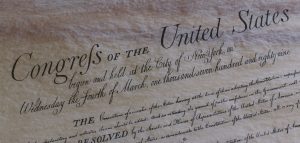
A July 1, 2019 article titled “Declaration of Independence still inspires activists,” paints a picture of a real scenario that contrasts sharply to the one that occurred in Philadelphia in early July at the Pennsylvania State House, what we now know as Independence Hall.
Shauna Marie O’Toole is a transgender activist who has organized and attended countless rallies and lobbied New York State lawmakers for legal protections. Convinced that “no amount of science” would win over opponents, she decided that an “emotional statement” was needed, one drawing upon words as rooted as any in American history.
“We hold these truths to be self-evident,” O’Toole wrote, “that all people, regardless of race, gender, religion, immigration or economic status, sexual orientation or gender identity, are created equal, that they are endowed by their government with certain unalienable Rights, that among these are Life, Liberty and the pursuit of Happiness.’”
Can you spot the flaws in Shauna Marie O’Toole’s attempt to “translate” the words of the Declaration of Independence into a modern-day appeal? Can you see the tyrannical place to which her rhetoric will lead? Sure, it’s emotional—but it isn’t rooted in reality or truth.
The primary strength of the Declaration of Independence is that it is, and has been, rooted in truth. Noble, lofty, idealistic—yes, absolutely—but resting on, and rooted in, bedrock truth. Will you do your part to help others understand this?
American liberty depends on it.
You are invited to explore America’s founding principles further in Principles of Liberty: Ten Biblical Truths Embedded in the Declaration of Independence — A Five-Session Bible Study Series. Learn more here.
A list of all ten principles we have considered in this series is available here.
Related article: Recapturing the Spirit of ’76
Copyright © 2019 by B. Nathaniel Sullivan. All rights reserved.
Unless otherwise indicated, Scripture passages have been taken from the New King James Version®. Copyright © 1982 by Thomas Nelson, Inc. Used by permission. All rights reserved.
top photo credit: John Trumbull, The Declaration of Independence
photo credit: Assembly Room, Independence Hall, Philadelphia, Pennsylvania / Wade Dunn, Jr. — This is the place where, in 1776, the Declaration of Independence was debated and adopted; and where, eleven years later, the US Constitution was debated and officially sent to the states for ratification.
image credit: Monticello
image credit: Liberty Bell Postage Stamp, 1926 — To learn more about the Liberty Bell, go here.
Notes:
1In his speech, Douglass “roundly criticizes Americans for saying they promote natural rights and equality before the law while still abiding legalized chattel slavery,…[yet still affirms and] celebrates the United States’ ideals and calls Americans to live up to them by abolishing slavery.”
2Gary Amos, Defending the Declaration: How the Bible and Christianity Influenced the Writing of the Declaration of Independence, (Brentwood, TN: Wolgemuth and Hyatt, 1989), 78. [This is the source information cited by Alvin J. Schmit.]
3Alvin J. Schmidt, How Christianity Changed the World, (Grand Rapids: Zondervan, 2004), 254-255.
4Even more recently, Ronald Reagan issued a similar warning.
5William J. Bennett, America, the Last Best Hope—Volume 1: From the Age of Discovery to a World at War, (Nashville: Thomas Nelson, 2006), 122.
6Bennett, 86.
7See item 4 on this page.
